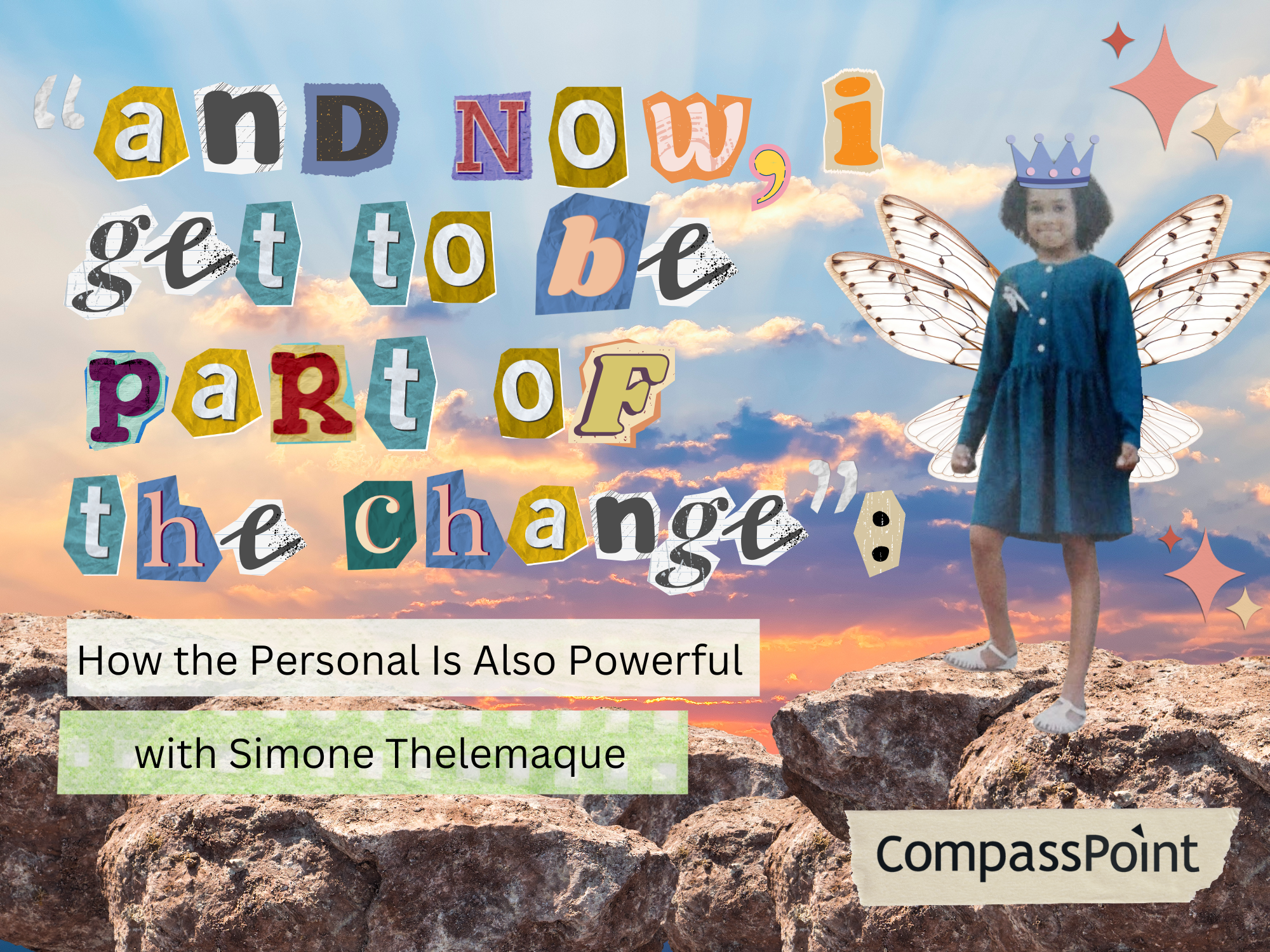We're often thrown into the role of facilitator without a lot of support. What do you do when things get hard? Here's how slowing down, synthesizing, and shifting can help you and the group get regrounded.
Join us for our next Facilitation Skills: Creating Powerful and Purposeful Meetings training.
Join us for our next Facilitation Skills for BIPOC Leaders: Creating Powerful and Purposeful Meetings
by Hana Lee
Try this on with me; find a tree. Get really close to the tree, and zoom in on one leaf. Examine it carefully, closely paying attention to all of the intricacies of its structure and form. What does it feel like? Smell like? Look like? Sound like?
Now, take several steps back. Looking at the entire tree, what do you notice? How did the intricacies of that single leaf mirror and differ from the whole tree? What does the whole tree feel like? Smell like? Look like? Sound like? How is the leaf connected to the tree? And how is the tree connected to the leaf?
Facilitating groups through a discussion or toward a common goal often feels like this: having to hold both the big picture (where we’re going and why) while responding to all the little things that pop up along the way (feelings, questions, tensions, and more).
When it comes to facilitation, there is no template, flow chart, or snappy infographic that will give you the perfect answer every time. As leaders, we often step into this role without a lot of preparation or support. It’s messy and requires trying things on, reflecting, and incorporating feedback along the way. Facilitation is more of an art, and less of a science. It relies on empathy, some structure, and the willingness to improvise along the way, too.
In this resource, I want to provide some phrases, questions, and practices I have in my facilitation fanny pack that help me live into the facilitator I want to be in hard moments—I call them moments when I need to synthesize, slow down, or shift. These are moments when harmful power dynamics arise, moments when I’m stuck and unsure of how to guide the group, or times when I need to check in with myself..
As with all resources, some of these may make sense for your context, and others may not. You are the master of your own situation, and I invite you to try what works for you, and leave behind what doesn’t.
Synthesize: Ask questions and offer reflections that foster clearer communication and help the group make meaning
Conflict and disagreements happen in meetings. It’s normal—it’s a byproduct of being in relationship with other people. But sometimes the conflicts and disagreements can detract from the power and momentum of the group. In those moments, I return to three useful questions:
- “What are they saying?”
- “What am I hearing?”
- “What is the group feeling?”
Synthesizing and reflecting back to the group can help de-escalate tensions, minimize or prevent misunderstanding, give people space to be heard, and build empathy. When we allow the group to really hear each other, it also helps us get back on track with our purpose. In order to accomplish this, I approach with curiosity and ask questions. Some questions I might ask are:
- “Can you repeat what you’re saying in different words?”
- “Can you unpack that for me more?”
- “What I’m hearing from you is ______. Did I hear you correctly?”
- “Let me repeat what I’m hearing to make sure I’m understanding you correctly.”
- “What is at the heart of your concern?”
The questions above are offerings, but my encouragement is for you to tap into your needs and intuition at that moment. When you are feeling curious about something someone is saying, what questions might you ask to better understand them? What questions can you ask to build empathy for the truth being told in that moment? Pause, ask the questions you need, and let the magic of the group and the moment unfold.
Slow Down To Help Yourself and Others Reset
Facilitators are not superhumans. There are moments when we don’t know what to do, moments where we’re triggered, and times when we need a minute to regroup. One of my favorite facilitation “skills” is to give myself and the group permission to slow down. What does that look like?
- Check in with the group: “Do we need a break?” Other times, you may want to use your power as a facilitator to be direct and say, “Let’s take a break.” Don't discount what your body is picking up on and trust your intuition.
- Drink some water, breathe, and touch your feet to ground yourself back in your body. Dance, touch a plant, have a snack, pet your cat, and encourage others to do the same during a break. If you’re meeting virtually (as many of us still are), stepping away from screens can be a useful reset.
- If you have a co-facilitator, use this time to check in with each other and regroup. Do you need to shift the agenda? Are you both feeling that energy? Are you both noticing changes in the group dynamic?
- Engage in some somatic exercises. I love this video of simple movements that allow us to reconnect with ourselves.
Shift Attention, Energy, and Time
There are times in a meeting when you’re going down a path that you and the group didn’t plan for. Or maybe you’re following the agenda, but you’re sensing the group’s needs are not being met. Here are some things we can do to check in and shift to get back on track.
- Name what you’re noticing! Even if you don’t know what “it” is! It can look like “Hey, I’m noticing that we’re 10 minutes behind, and I want to move us into our next agenda item, does that sound good to everyone?” Or it can be naming a feeling: “I’m feeling the energy shift after that last discussion, is everyone else noticing that?” Naming the unnamed dynamics can build choice points for the group on how they want to use their time together. Engage your sense-making and trust your gut. Your power of noticing as a facilitator can be really useful here.
- Sometimes someone is taking away from the group’s momentum by introducing questions and concerns that stray too far from the purpose of the meeting. In moments such as these, I’ll say “Thanks for that input! I’m going to write it down and we can circle back to that during break”. Acknowledge that their contribution is important, but that there might be a better time and space to delve into it fully.
- Facilitators put a lot of love into agendas. Sometimes we love our agendas so much that we’re unable to practice discernment, and can forgo the needs of the group for the sake of sticking to the agenda for its own sake. In the moments when we recognize that the agenda is not meeting the needs of the group, practice consent. Name for the group: “We’re straying from the agenda, but I feel like the conversation we’re having is important, and will help us achieve the purpose/goal in a different way than the agenda planned. Do I have the group’s consent to change our agenda in real time?” By pausing, acknowledging the moment, and gaining consent, we can shift the power of the group towards the same goal. Getting from point A to point B can happen in so many ways, open yourself and the group up to different possibilities.
Sometimes, we let one bad meeting make us think that we are bad facilitators! Sometimes, we focus only on the leaf and forget the whole tree. In moments when I get caught up on facilitation mistakes or failures, I can be extremely hard on myself. It feels like that single experience is taking over. I get overwhelmed and anxious, and forget about the bigger picture. In those moments, I pause and zoom out. How is this experience part of a bigger picture, a bigger story, a bigger cause? How am I remembering that the leaf is part of the tree, and that the tree is an extension of the individual leaf?
I share this example because I’m not here to tell you how to facilitate so you never make a mistake again. In fact, I don’t think that’s possible! My invitation is to shift our benchmark for success away from trying to facilitate your next meeting perfectly, into reflecting on what kind of facilitator you want to be over time (maybe even a lifetime!). There will be big failures and big successes - but the measure of whether you're doing it well will be over years, so don’t forget to synthesize, slow down, shift, and breathe along the way.
Come learn and practice facilitation skills with us! Our Facilitation Skills: Creating Powerful and Purposeful Meetings and Facilitation Skills for BIPOC Leaders: Creating Powerful and Purposeful Meetings training are supportive learning spaces where you can connect with more helpful resources.






Submit a comment